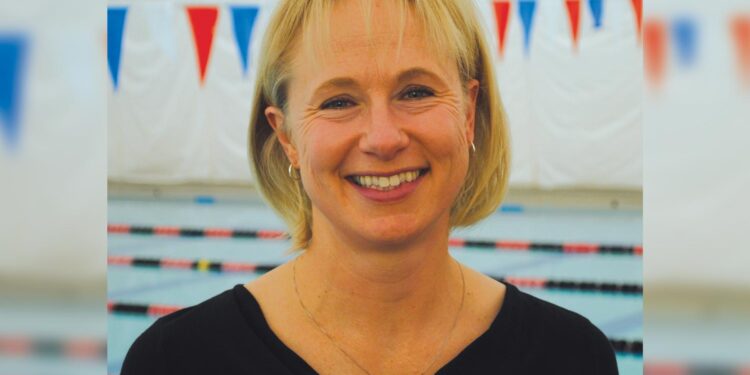This month, we spoke to Meredith Griffin, the YMCA swimming and diving sports regional representative leader at the YMCA of the USA, about competitive swimming.
What is the recipe for success in offering competitive swimming?
MG: I believe everything starts with purpose. What is your purpose in offering a competitive swimming program? Identify it, communicate it, market it and celebrate it. How will you define success? Everything follows purpose. If you try to put structure first, you set the program up for failure. In the YMCA, competitive swimming is a youth development program, so our purpose centers on principles of holistic youth development. And competitive achievement is certainly part of that.
Next, consider what your community wants — other competitive swimming programs, learn-to-swim or feeder programs, community interest in swimming, potential coaches or parental involvement, etc. Successful programs typically have consistency in leadership from year to year and maintain respectful working relationships with their facilities, parents, athletes and community. Program leadership should focus on the whole program, not just running effective workouts and performing well at meets.
How can competitive swimming benefit young members?
MG: The physical benefits are obvious. It establishes healthy habits and life sustaining skills. It also promotes commitment, perseverance, delayed gratification, time management, teamwork and mental strength. In the Y, we identify achievement, relationships and a sense of belonging as cornerstones of youth programming as young people develop into adult citizens. Competitive swimming easily promotes all three. One important aspect of competitive swimming that is often overlooked is it’s a co-ed sport. Boys and girls can learn how to work together, communicate and respect one another. Most sports are single-sex and don’t offer this opportunity.
How is it possible to have competitive swim leagues for adults?
MG: I am a huge proponent of adult swimming, otherwise known as Masters Swimming. Adults benefit from competitive swimming in the same ways as young people: health, mental strength, a sense of belonging, positive achievement and supportive relationships. Swimming is something you can do almost forever and so many doctors recommend swimming to stay healthy and active.
What role can competitive swimming play in creating a fun, engaging culture?
MG: Coaches, swimmers, parents and volunteers make the sport happen. The stronger those connections, the stronger your program and community. There is a lot of spirit, energy and fun in competitive swimming. When directed in a healthy way, it feeds your entire culture. Without competitive swimming, you limit aquatics, sports and recreation opportunities, which can make your facility transactional. With competitive swimming, you can make your facility and your culture transformational.










